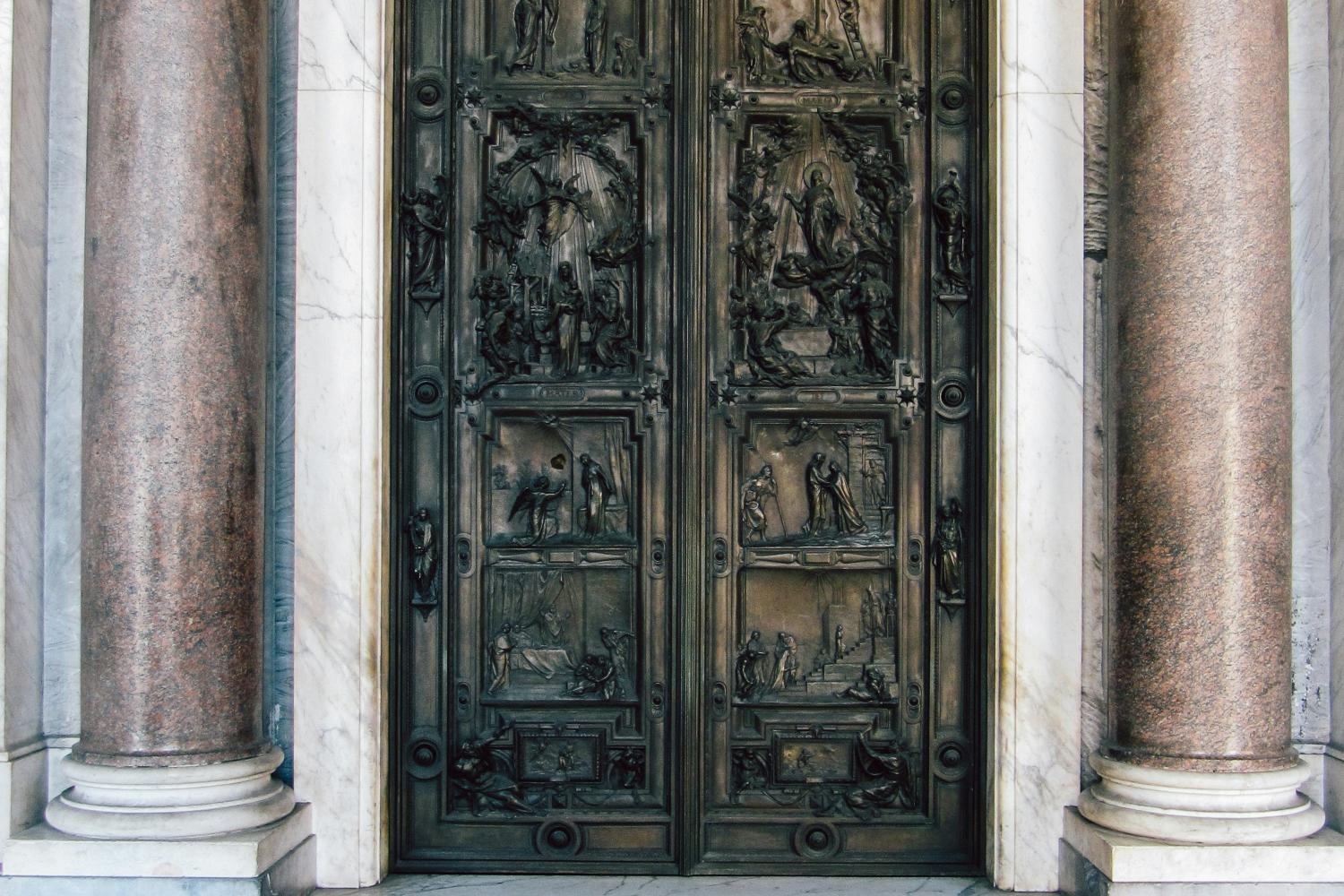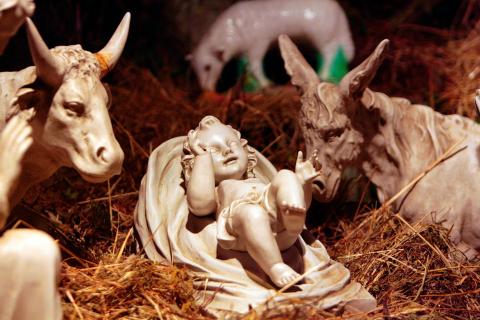
Christmas Eve saw the opening of the Jubilee Year of Hope for Catholics, marked by the opening of the Holy Doors at Saint Peter’s Basilica and kicking off a year that will see millions of pilgrims make the trek to Rome to pass through them.
But what is the meaning of this jubilee? Pope Francis has spoken of it as a calling “to find our greater hope in Him, and then, without delay, [to] carry that hope with us, as pilgrims of light amid the darkness of this world.” But this helpful piece also touches on some of the deeper roots of a jubilee year, the origins of which stretch back to the Old Testament and into the ministry of Christ himself.
Noting the word’s historical as well as philological meaning, the article speaks to the way a jubilee was not only a ritual act or celebration event, but had a deep social and ethical bent, too, one meant to have “a profound effect on the existence of a people.” In the Old Testament, a jubilee’s invocation meant rest for farmland, as well as the remission of debts, the reinstatement of land and wealth to the poor who had lost it, and the liberation of slaves, all as a proclamation of God’s primacy, provision, and lavish kindness to the “people of the exodus.” For Christ, whose entrance into his public ministry became the inauguration of a “perfect jubilee,” one to be extended throughout the centuries to follow, these meanings are deepened and amplified: “The Spirit of the Lord is upon me,” Jesus reads from the synagogue in Nazareth, marking the gestures of this novel jubilee, “because he has anointed me to preach good news to the poor. He has sent me to proclaim release to the captives and recovering of sight to the blind, to set at liberty those who are oppressed, to proclaim the acceptable year of the Lord” (Luke 4:18-19). In all of these expressions, a “jubilee,” at its heart, persists as a time of profound mercy – mercy that we might put a lot of stake in as the source of the “greater hope” Pope Francis has invited us to embrace in our own time.
Indeed, in addition to these philological and historical realities, there is an anthropological one, too, that rests at their core: without mercy, we fallen, wounded humans have no way of living well together. Our culture tends to be quick to make calls for justice, making anger and resentment the default, and most righteous, stance possible in its absence. The problem is that this stance never attains what it seeks, and only results in more or different anger and resentment in the end. Christians, therefore, while loving justice and fighting for it where possible, also deal in reality. We know we’re incapable of securing perfect equity and equality this side of heaven, so we place our hope instead in the Lord’s promise that justice is his, with the righting of all wrongs to happen at his hands. And we then plod along a different road forward when it comes to fostering peace and reconciliation in our communities, a road the Gospel maps for us: one of forgiveness, the free and merciful remission of debts for the sake of love and the healing of relationship.
While Pope Francis was opening the holy doors on Christmas Eve, there’s a Polish tradition that also happens that evening every year. A small wafer, called an oplatek, is passed around gatherings of family members just before dinner. The male head of household begins the ritual by expressing his hopes for his wife in the new year, also asking for her forgiveness for some fault of his own. She breaks off a piece of the wafer and shares it with her husband, pledging to forget all offenses. This small expression of reconciliation and renewed goodwill is then repeated between all those gathered, as its own kind of small, familial jubilee.
In this new year – and at the start of this Jubilee Year of Hope – what if we took upon ourselves just this sort of practice. What if we drew up a list of all the things we are angry about, all those areas where we feel disrespected, taken advantage of, or forgotten, whether in intimate relationships or on a societal or even global level, and then declared a kind of “inner jubilee.” What if we tore up each I.O.U., cancelled all debts, erased the mounting tally of grudges, and began anew with a fresh slate. That would be sure to have “a profound effect on the existence of a people,” and on the state of our own minds and hearts. After all, we have nothing to lose but our anxiety, anger, and frustration. And we have everything to gain: peace of heart, founded on hope in God’s wondrous, vast, inexpressible mercy.
Days after Pope Francis opened the Holy Door at St. Peter's Basilica, the Holy Doors at both St. John Lateran and St. Mary Major were opened. The remaining major basilica, St. Paul's outside the Walls, is set to open its Holy Door on January 5.
Australian lawmakers have banned children under the age of 16 from common social media sites like Instagram, X, TikTok, and Facebook, drawing both criticism and praise from across the world.


